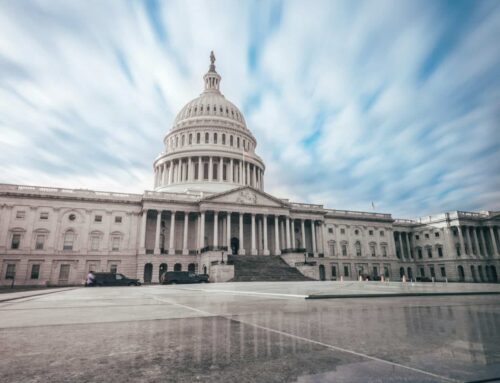In a holiday-themed review, here are some good budget and policy issues (Easter Eggs) and some not-so-good ones (Passover Plagues) we have noticed over the last few months.
Easter Eggs:
No More MOX is an Early Easter Treat
Construction of the Mixed-Oxide (MOX) Fuel Fabrication Facility at the Savannah River Site in South Carolina has been a taxpayer nightmare for years, but the Department of Energy (DOE) has finally decided to make the smart move and abandon the project. The facility was meant to dispose of excess weapons-grade plutonium but, in reality, merely disposed of much needed federal tax dollars. By the time the project broke ground in August 2007, its total cost had jumped from $1 billion to $4.8 billion. By 2016, the project’s cost had ballooned to more than $17 billion. DOE plans to repurpose the site and use it for nuclear weapon plutonium pit production instead. Whether the new project will amount to another money pit remains to be seen.
Let’s All Start Calling it “FOCO”
Lawmakers are pushing back at the level of Overseas Contingency Operations (OCO) spending requested by the President for Fiscal Year 2020. At $165 billion, OCO would be the second largest agency in terms of discretionary spending in the federal government after, natch, the Pentagon. Luckily, some sensible thinking on this issue seems to be taking hold on Capitol Hill. Neither the House nor the Senate Budget Committees included that much OCO funding in their budgets. And House Armed Services Committee Chair Adam Smith (D-WA) recently said OCO, “was always a little bit fuzzy in terms of using it to fund things that might not necessarily have been part of the overseas contingency operations, but now they’ve eliminated any pretense. They’ve actually divided up the OCO into real OCO and then base OCO.” We couldn’t agree more. He went on to call it “FOCO, fake OCO.”
New Ruling Will Bump Up Federal Resource Royalties
A recent court ruling held that the Department of the Interior’s (DOI’s) 2017 repeal of the Federal Oil, Gas, and Coal Valuation Rule was illegal. The ruling reinstated the underlying 2016 Valuation Rule, which increases how much private companies must pay taxpayers for developing public resources. Just weeks into the Trump administration, the DOI postponed the rule’s implementation, and then later repealed it altogether. At the time, we noted that the repeal was a giveaway to oil, gas, and coal companies. Judge Saundra Brown Armstrong seemed to agree and concluded that spouting industry talking points without providing any evidence isn’t good enough when it comes to reversing a rule that was five years in the making. If the Valuation Rule avoids further court action and goes into effect, taxpayers could see as much as $75 million more per year in royalty revenue.
Passover Plagues:
Vogtle Just Won’t Let Our People Go
Somehow our people (federal taxpayers) just can’t escape from the monstrous Vogtle nuclear reactor project in Georgia. Last month, the DOE finalized $3.7 billion in additional federal loan guarantees from the Title 17 Loan Guarantee Program for Plant Vogtle’s nuclear reactor construction project. Taxpayers were already on the hook for $8.3 billion in loan guarantees from earlier DOE awards, and with these new guarantees, taxpayer liabilities now total $12 billion if the project goes under. That risk is a heavier burden to bear because of Vogtle’s terrible track record. The construction of the two nuclear reactors was originally supposed to cost $14 billion and finish in 2017. Now, cost estimates have doubled to roughly $28 billion, and the completion date has been pushed back to 2022.
Disastrous Disaster Policies
The House and Senate are at odds over certain provisions of the supplemental disaster bill for 2018 and 2019. What is certain is more than $3 billion will go to compensate farming and ranching businesses for losses due to natural disasters – even though businesses involved in agriculture benefit from the most generous taxpayer-funded safety net known to humankind. Since 2017, lawmakers have written checks providing $120 billion in supplemental funding – virtually all of it “off-budget” (but still adding to the deficit). A good portion (not all) of this funding won’t be spent for years and isn’t really emergency- or disaster-related. This new disaster bill would add tens of billions more to this disastrous disaster spending.
Trade Tragedies
The President’s trade war still has no end in sight. Agriculture businesses have borne the brunt of retaliatory tariffs from other countries. In response, the Trump Administration has doled out $12 billion in additional, unbudgeted subsidies to buy the silence of farmers and ranchers affected by retaliatory tariffs.
Military Services to Congress: $750 billion Simply Isn’t Enough
The military services released their so-called “Unfunded Requirements Lists” (UFRs) that purportedly identify needs the Pentagon couldn’t shoehorn into their massive budget request from less than three weeks earlier. Army – $2.3 billion. Air Force – $2.7 billion. Navy – $3.2 billion. We still haven’t seen what the Marine Corps wants. These lists are on top of a total Pentagon request of $750 billion that includes a whopping $165 billion for the “off-budget” Overseas Contingency Operations (OCO) account (but – see above – adds to the deficit) and a mysterious $9 billion in unexplained “emergency requirements.” But for some people, that just isn’t enough.
Enjoy your holiday weekend! We’ll be back next week (and the next and the next) bringing you budget and policy issues you might otherwise have missed.










